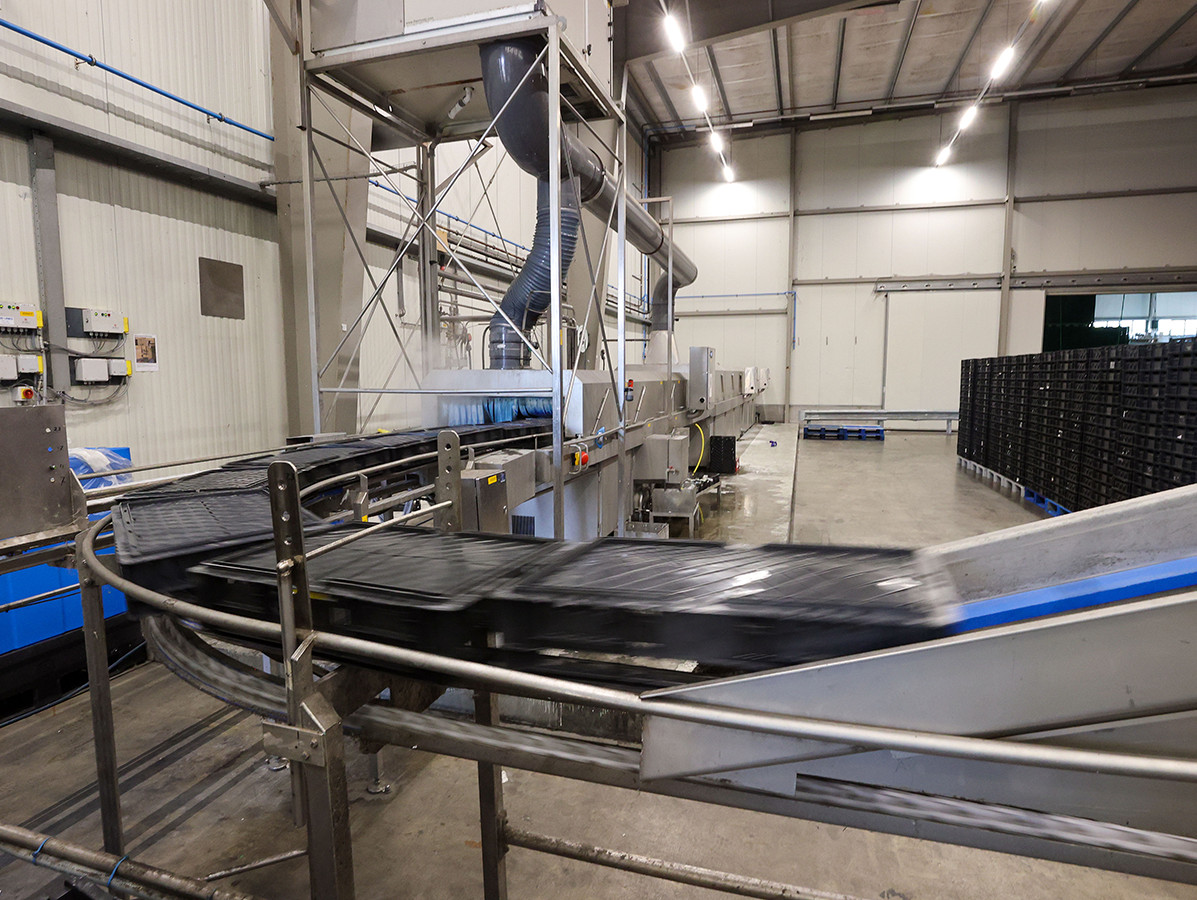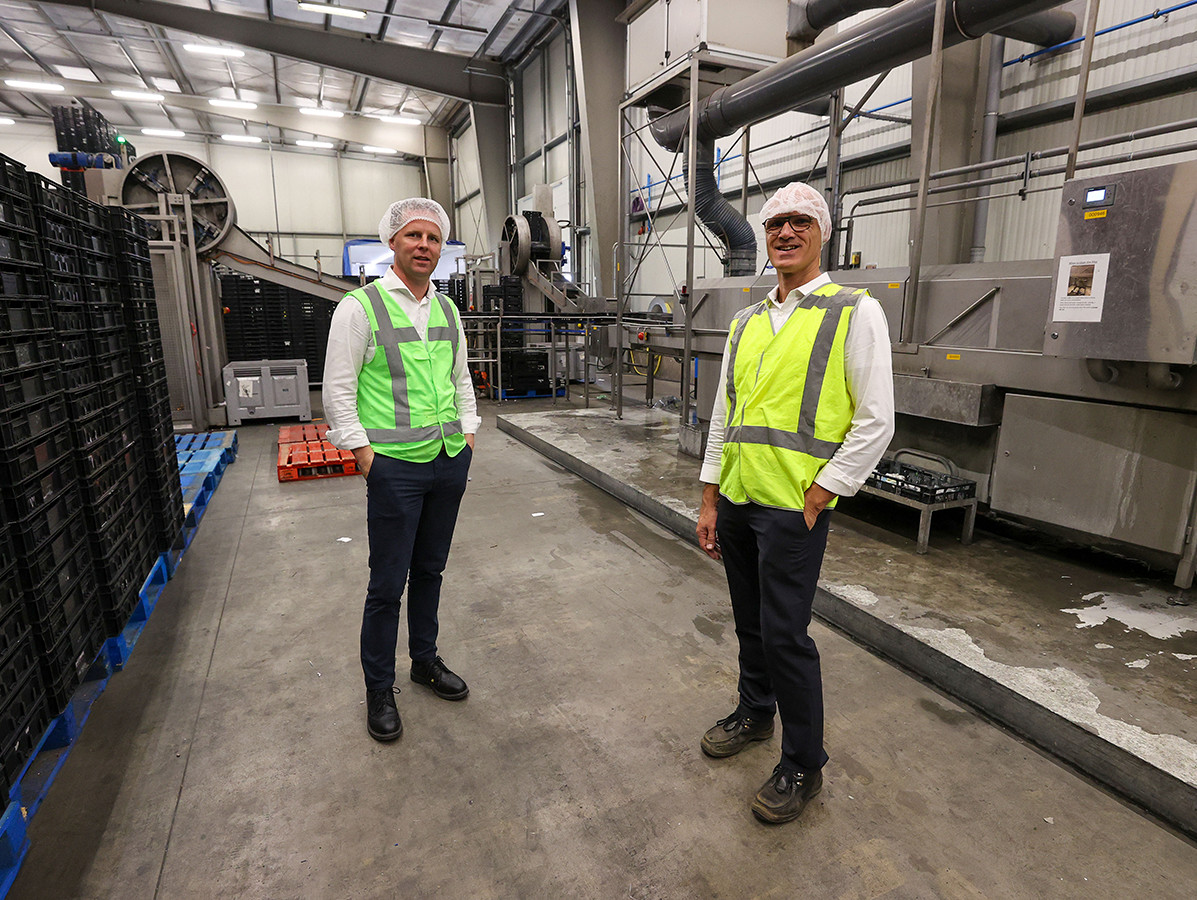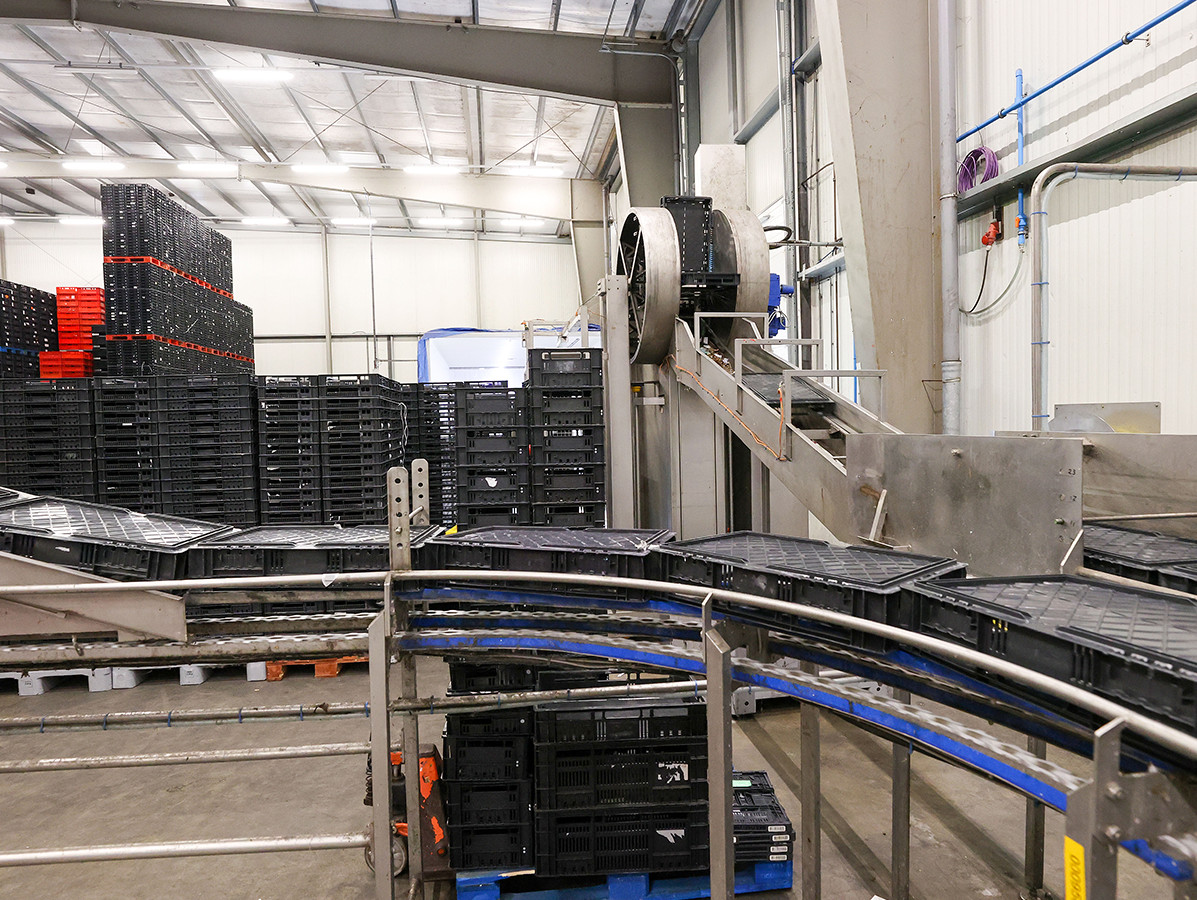
Some 300,000 crates for the food industry are washed every week at the Tilburg branch of HB Rts. Numbers that can only be achieved if a thorough crate washing machine is used. LETS helped HB to meet the growing demand.
Tick - tick - tick - tick... Even upstairs in the office there is no escaping the repetitive sound of the crate washing machine. "Some people think it's a noise, but for me it's a reassuring sound. Then I know the machine is running", says Léon Rust, general manager at HB Rts since 2019. At nine locations in the Netherlands, the company takes care of the rental, cleaning, counting and sorting of packaging used by the food industry. "It mainly concerns plastic crates, pallets and in Heerenveen also cheese platters. At all locations together, some three million items are washed every week. Here in Tilburg there are about 300,000 to 350,000", says Rust from the office that overlooks the work area.
The company, then called HB crc, was founded in 2006: in response to market demand to outsource the counting of PET bottles from a soft drink manufacturer. "Due to stricter legislation and regulations on hygiene and traceability, it is important for the industry that the crates and pallets for transport are clean and sticker-free. After all, the NVWA not only checks food manufacturers for hygiene, but also whether the information on the sticker code matches the contents of the crates. However, cleaning and sticker-free packaging gives the industry a lot of extra ballast and high costs. The industry demanded that these activities should be relieved. That's why we started washing and renting out crates in 2008," says Léon.

Léon Rust (left) en Jaco Wolters
When the packaged products have been delivered in crates and on pallets by the food processor to a retailer's distribution centre, the truck drives back with empty, 'dirty' crates past one of HB Rts' locations. There, the driver receives the same amount of washed and sticker-free crates in return. This sticker-free process is partly done manually, by the way. Léon: "Before the crates enter the crate washer, the stickers are pulled off by the employees standing in front of the line. After they have been washed, they may still contain sticker residue, but that is permitted.
More and more food producers are becoming convinced of the benefits of HB Rts' services, as evidenced by the fact that the number of customers has been rising sharply for a few years now. In Tilburg it was therefore decided last year to install another crate washer. "With the previous machine, too much of the process was still done manually. We wanted to make a mechanisation effort. Besides, in this environment, where many production companies are located, it is difficult to find employees". Coincidentally, there was a suitable machine at Fustpunt, a packaging company that was taken over by HB Rts in 2018. Because the crate washer was no longer needed there, the company wanted to relocate it to Tilburg. Before the machine was reinstalled in the spring, it went to the original manufacturer LETS for a thorough overhaul. For HB Rts it was the first introduction to the company from Dronten. Léon: "We immediately experienced how thoroughly LETS works. The upgrade was well thought out, designed and carried out. That's where their strength lies.

Jaco Wolters, Sales Engineer at LETS, explains the core business of the company: "We specialise in cleaning systems for the food industry at home and abroad. From sinks to fully automatic crate washing lines; we design, draw, produce, install and maintain everything ourselves". When designing a crate washer, the type of crate and the degree of contamination must be taken into account. Wolters: "The chemistry, cleaning time, pressure and temperature determine the cleanability of the crate. For example, fats only dissolve at 45 degrees, but proteins solidify at 52 degrees. With our experience in various food sectors, we are able to monitor that process well.
The objective that the machine had to achieve at HB Rts seemed less complex because the company only cleans crates that transport packaged products. Nevertheless, there was a bottling neck here too, says Léon: "We process six different types of CBL and also customer-specific crates, but this machine was initially only able to handle two sizes of crates. Nevertheless, we wanted to have the line running here so that we could get used to it as an operator". Over the past few months, LETS mechanics have fine-tuned the already installed crate washer in Tilburg. The machine comprises two lines that now automatically unstack, clean, dry, stack and palletise all types of crates, with a capacity of 2,500 pieces per hour per line. Léon is therefore very satisfied: "Everything we wanted has been arranged by LETS.
Beeld: ©Bert Jansen Fotopersburo
Source: Vakblad Voedingsindustrie 2020